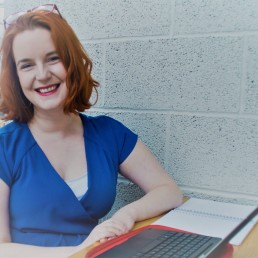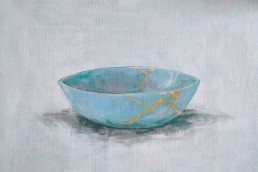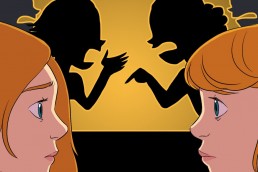Words by Hayley Sleigh
Photography via Unsplash
I struggle with health anxiety, AKA hypochondria. There is no symptom, no matter how big or small, that I can’t chalk up to some imagined horrible syndrome. I ought to have a loyalty card for visiting my GP for all the times I’ve popped in to check something out; a spot of blood in my ear which turned out to just be a scratch, not a burst eardrum; a bruised boob, which was probably just the result of a crappy sports bra, not breast cancer as I feared. I once fainted while watching a short film about leukaemia and bone marrow transplants (which was a cartoon, for crying out loud).
This year you can add cervical cancer to the list of serious disorders that I have practically diagnosed myself with (along with breast cancer, skin cancer, stomach cancer, bowel cancer and Parkinson’s Disease). I went to my GP to check up on some irregular bleeds that I was having and he recommended that I needed to book a hospital appointment to get everything properly checked out, just to be on the safe side.
Instead of just getting it booked and getting on with my life, it sent me into something of an emotional tailspin, I’m sorry to say. My appointment went ahead sooner than planned, and found absolutely zero problems, as I should have expected. I got to watch the inside of my cervix and entrance to my womb on a pretty big screen, which means that I can now add ‘That’s the worst/grossest/most boring thing I’ve ever seen, and I’ve seen the inside of my own cervix!’ to my repertoire of witty put-downs.
I’m honestly not sure where all this fear comes from. My Dad passed away young (mid-forties), but not of the kind of mysterious, unforeseen illness or accident that I preoccupy myself with – one persistent cough, odd spot or bruise that turns out to be Stage 4 cancer, frequent headaches that are early warning signs of a brain tumour, and so on.
My health anxiety could be hereditary. In his later years, my grandpa had enough ailments – real and imagined – that we used to joke that, like Mr Burns from The Simpsons, they all cancelled each other out. My paternal grandmother, who is probably the strongest person I know emotionally-speaking, is the type who knows of someone who has suffered from every terrible tragedy and disease imaginable – not that she knows them personally, necessarily; she may have just read about them in one of those lurid, brightly coloured magazines. You know, the ones with headlines like ‘Choked to DEATH by a MARSHMALLOW’ and ‘In LOVE with my uncle’s GHOST.’
Health anxiety is considered to be a form of Obsessive Compulsive Disorder – obsessive thoughts about ill health and death followed by compulsive behaviours (for example, constantly checking the affected body part, frantically Googling symptoms and survival rates). Those of us with health anxiety are advised not to look up our imagined illnesses online. I have previously made the mistake of looking up statistics for a particular disease online in the hope of reassuring myself that it’s incredibly unlikely that I had it. Big surprise: it did not reassure me in the slightest and only fed the ravenous obsession-beast.
I feel guilty about all the people out there who are living with life-threatening and/or debilitating conditions, whose anguish I’m trying to envision when I put myself through the wringer each time. Many of them are among the most awe-inspiring and purpose-driven people you will ever come across. I appreciate the irony when I’m crying in bed at the thought of being diagnosed with something terrible when there are people who actually have that condition out there enjoying themselves and living their best lives.
There is a growing acceptance within our society about living with anxiety, driven by the work of fantastic mental health campaigners like Natasha Devon and Jonny Benjamin, and charities like MQ, Time To Change and Heads Together here in the UK, which is a wonderful thing. For me, successfully managing my anxiety takes a balance between accepting the way that I am and that these unhelpful thoughts are somewhat out of my control, and asking for more from life, and from myself.
I know plenty of other people like me who ‘catastrophize’: always worrying that the absolute worst is going to happen in every situation. I think some of us believe, deep down, that by imagining the worst, we will somehow prepare ourselves for it, but that’s an awful way to live – not fully living in the moment and making the most of your health, friends and family for as long as you have them.
One of the mantras that I live by is ‘you don’t have to believe everything you think.’ I am sure most of us would love to permanently purge our minds of all the awful thoughts that are getting in the way of living a calm and contented life, but it doesn’t work like that. My poorly evolved monkey brain creates some nonsense, and probably always will do.
I think of my anxious mind as being like a leaky tap: there will always be the odd unhelpful thought or feeling leaking out, but I can work to minimize the damage. The one motivating factor that I use to try and stop myself getting carried away with my health fears is that I already have a condition which can become debilitating: the anxiety itself. I run the risk of making one very real illness worse by becoming obsessed with an imaginary one (or several).
Hayley Sleigh
Hayley is currently studying for a master’s degree in Creative Writing at University of Nottingham in the UK. She also works as a freelance marketing and communications consultant and copywriter. She has previously been published in The Fiction Pool, Literally Stories, Dear Damsels and others. You can find out more about her by visiting her website www.hayleysleigh.com and by following @haysleighcreative on Instagram and @haysleigh on Twitter.







